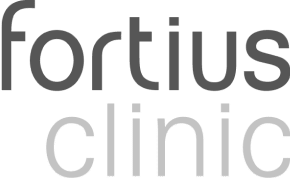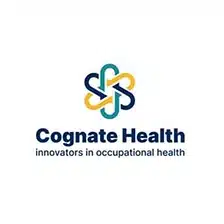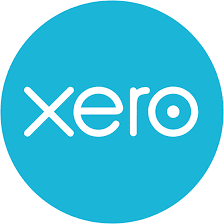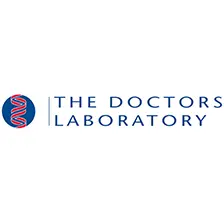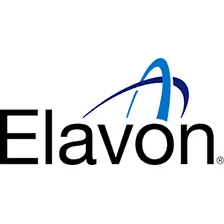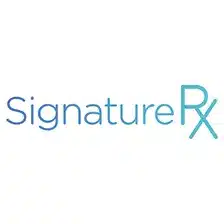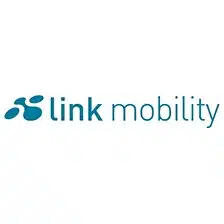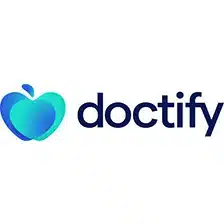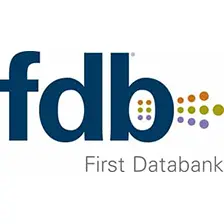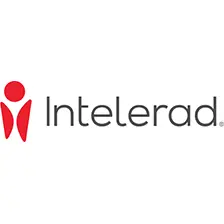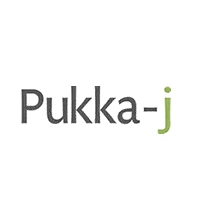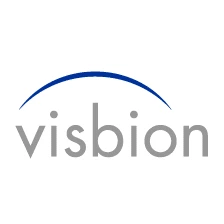Electronic Health Records Software: A Complete Guide for Healthcare Professionals
Electronic Health Records Software (EHR) is the backbone of modern healthcare. It’s the key tool healthcare providers use to manage patient information, coordinate care, and streamline workflows.
But let’s be honest – for many health professionals, adopting EHR systems can feel challenging. From worries about data security to the learning curve of new technology, it’s not always an easy road. How do you choose the right software for your needs? How can you make sure it integrates well with your daily operations?
In this guide, we’ll answer these questions and cover everything you need to know about Electronic Health Records Software, how it works, why it matters, and how to make it work for you.
What is Electronic Health Records Software?
Electronic Health Records Software is a digital platform that stores and manages patient information. Think of it as an online version of a patient’s medical file – but with added features that help physicians, nurses, and administrators.
It captures everything from medical history and treatment plans to lab results and billing. The aim? To help healthcare providers share information efficiently, improve patient care, and reduce manual paperwork.
Key Features of EHR Systems
Modern EHR platforms like Meddbase come with a suite of tools designed to make healthcare more efficient. Here are the core features that make a real difference:
- Appointment Management: Easily schedule, reschedule, and manage patient appointments with a few clicks.
- Patient Health Records: Track medical history, current medications, allergies, and treatment plans in one place.
- Clinical Workflow Management: From patient check-in to discharge, streamline clinical tasks to save time.
- Billing and Invoicing: Integrated billing systems make it simple to manage claims, payments, and revenue cycle management.
- Telehealth Integration: Remote consultations and patient engagement are key in modern healthcare. Telehealth features allow you to connect directly with patients no matter where they are.
- e-Prescribing: Electronic prescribing is another powerful feature that enhances patient safety, reduces medication errors, and streamlines the prescription process.
- Clinical Decision Support: Many EHR systems come with tools that provide insights and recommendations to assist clinicians in making informed decisions based on patient data.
- Analytics and Reporting: Gain insights into patient care, operational efficiency, and financial performance with built-in analytics and custom reports.
For practices looking for efficiency, integration is everything. With Meddbase, features like health analytics, telehealth, and patient portal help streamline processes, ultimately leading to better patient outcomes.
Why Use Electronic Health Records Software?
EHR software is not just a way to keep patient information in one place. It’s an all-in-one practice management solution that simplifies workflows, enhances productivity, and allows for seamless integration of all your healthcare data.
Here’s why so many healthcare practices are adopting it:
- Improved Care Coordination: With shared information, care providers can communicate better, leading to a comprehensive view of the patient’s journey.
- Patient Participation: Patient portals empower patients to access their medical information, request appointments, and engage in their care.
- Data Security: EHRs are designed to comply with laws like the Health Insurance Portability and Accountability Act (HIPAA), ensuring patient data is kept secure and private.
- Streamlined Billing: Integration of medical billing and coding tools reduces errors, speeds up the billing process, and helps optimise the revenue cycle.
- Regulatory Compliance: EHR systems help ensure compliance with healthcare regulations such as GDPR, HIPAA, and HITECH (Health Information Technology for Economic and Clinical Health Act), reducing the risk of penalties and breaches.
Related: How EHRs Improve Patient Engagement
Benefits of Cloud-Based EHR Systems
Not all Electronic Health Records Software is created equal. Cloud-based systems like Meddbase are gaining popularity for their ease of use, accessibility, and lower costs. Let’s break down why they’re making a splash:
- Accessibility Anywhere: Whether you are working from the office or performing a home visit, cloud-based systems give you access to patient data from anywhere.
- Data Security and Compliance: Unlike server-based systems, cloud solutions benefit from regular updates and tight security measures to protect protected health information.
- Scalability: As your practice grows, cloud-based systems can grow with you without the hassle of costly infrastructure upgrades.
- Reduced IT Burden: There’s no need to maintain physical servers or hire a dedicated IT team. Your data is stored and managed securely in the cloud.
- Disaster Recovery: Cloud-based EHRs typically include built-in disaster recovery and backup capabilities, ensuring data is protected even during unforeseen events like natural disasters or cyber-attacks.
For many healthcare professionals, the cloud is transforming how they work. By using a solution like Meddbase, you’re choosing efficiency, security, and cost-effectiveness.
Related: How Meddbase Keeps Your Practice Efficient and Compliant
How to Choose the Right EHR Software for Your Practice
Not sure which EHR platform to go for? The key to choosing the right EHR software is understanding what your practice needs most and finding a solution that delivers exactly that.
Factors to Consider When Choosing an EHR System:
- Usability: Look for a system with an intuitive user interface. If your team finds it difficult to use, it will take more time than it’s worth.
- Integration Capabilities: Does it work well with other tools in your practice? Whether it’s billing software or telehealth solutions, integration is crucial.
- Patient Portal: Patient engagement is a priority. Make sure your EHR has an easy-to-navigate patient portal that encourages patient interaction.
- Compliance: Check for HIPAA compliance. Data security is critical, and your EHR must align with local and international regulations.
- Customisation: Every practice is unique. Choose an EHR that allows you to customise workflows to fit your exact needs.
- Customer Support: Is there a reliable support team available when you need help?
- Interoperability: The EHR should be able to share information seamlessly with other health systems, labs, and pharmacies. This is crucial for continuity of care and effective care coordination.
Common Challenges in EHR Adoption
While EHRs can do wonders for your practice, adopting them does come with a few bumps. The most common challenges include:
- Learning Curve: Training staff to use new software takes time. Meddbase offers comprehensive training and support to help get your team up to speed quickly.
- Data Migration: Migrating patient records can be a daunting task, but it’s crucial to have a secure process in place.
- Cost: The initial cost can be a concern for smaller practices. Cloud-based systems help lower upfront expenses, with pay-as-you-go pricing that doesn’t require costly infrastructure.
- Resistance to Change: Some staff members may be resistant to switching from paper to digital or moving to a new system. Effective training and highlighting the long-term benefits can help ease this transition.
- Data Breaches: Concerns around data breaches are real, especially given the sensitivity of patient information. It’s important to choose an EHR system with robust security protocols, including data encryption, two-factor authentication, and regular security audits.
EHR Software & Regulatory Compliance
Keeping up with regulatory compliance in healthcare is essential, and EHR software plays a big part in staying compliant. Laws like HIPAA (in the United States) and GDPR (in Europe) focus on the privacy and security of patient data.
Using an EHR system like Meddbase ensures that your practice is not only compliant but also efficient in managing privacy protocols. Regulatory bodies like the Office of the National Coordinator for Health Information Technology also set standards for interoperability, making it easier for different systems to work together seamlessly.
Other important regulations that affect EHR software include:
- Health Information Technology for Economic and Clinical Health Act (HITECH): This act promotes the adoption and meaningful use of health information technology. It also strengthens privacy and security protections under HIPAA.
- General Data Protection Regulation (GDPR): For practices dealing with patients in Europe, GDPR compliance ensures that patient data is handled with utmost privacy and care.
- Cures Act: This legislation encourages interoperability and helps prevent information blocking, making it easier for patients to access their health information.
Related: The Importance of HIPAA Compliance in EHR
How EHR Software Enhances Patient Outcomes
Better Data Management
Data management is at the heart of patient care, and Electronic Health Records Software makes managing patient information simple and effective.
- Complete Patient Histories: Doctors have access to a complete medical history, which means fewer gaps in care and reduced chances of errors.
- Preventative Care: Having easy access to medical histories allows healthcare providers to make better decisions on preventative care.
- Quick Access in Emergencies: Whether it’s the emergency department or an unplanned situation, having patient records instantly available can be lifesaving.
Enhanced Interoperability
The concept of interoperability is huge in healthcare. Simply put, it means different systems can talk to each other.
With Fast Healthcare Interoperability Resources (FHIR) and other standards, modern EHR systems can easily share information between hospitals, clinics, and specialists. This ensures seamless transitions for patients who need to visit multiple healthcare facilities.
Interoperability also means that patient data can be updated in real-time and accessed by multiple healthcare providers, thus enabling collaborative care and minimising the risk of duplicated testing or missed information.
Related: Improving Interoperability in Healthcare with EHR
Boosting Physician Productivity
One of the key advantages of EHR systems is enhanced productivity for healthcare workers. Physicians and nurses spend less time filling out forms and more time with patients.
Workflow automation reduces administrative tasks. From scheduling and reminders to clinical decision support systems, technology is stepping in to do the heavy lifting.
- Voice Recognition and Documentation Tools: Some EHRs come with voice recognition capabilities, allowing healthcare professionals to dictate notes directly into the system, saving time and reducing manual input.
- Order Sets and Templates: Pre-configured templates and order sets for common diagnoses and procedures can further speed up data entry and standardise care processes.
- Dashboard & Reporting: Comprehensive dashboards give physicians a clear view of patient information at a glance, making it easier to stay updated and make informed decisions quickly.
Case Study: Real-Life Impact
Let’s take an example of a Fortius Clinic using Meddbase. By switching from a paper-based system to EHR, the clinic saved over 20 hours per week on manual administrative tasks. This resulted in a 25% increase in patient appointments without increasing staff workload.
Additionally, the clinic reduced medication errors by implementing e-prescribing and clinical decision support tools that alerted physicians to potential drug interactions.
Another example involves a mental health clinic that adopted Meddbase to provide better care to their patients. With the patient portal, individuals could easily schedule appointments and securely communicate with their providers. This led to better follow-up care and increased patient satisfaction.
Related: Case Studies of Meddbase in Action
Advanced Features to Look for in EHR Software
If you’re evaluating different Electronic Health Records Software, here are some advanced features that can take your practice to the next level:
1. Artificial Intelligence and Machine Learning
AI capabilities are increasingly being integrated into EHR systems to improve decision-making. For instance, predictive analytics can help identify patients at risk of chronic diseases based on their medical history.
- Risk Stratification: AI tools can assist in identifying high-risk patients, allowing healthcare professionals to intervene early and provide targeted care.
- Automation of Routine Tasks: Automate repetitive tasks, such as prescription renewals, appointment reminders, and billing codes, to improve productivity.
2. Population Health Management
Population health tools allow you to analyse data across patient populations, enabling proactive management of common conditions, vaccinations, and chronic disease.
- Health Trends Monitoring: Identify health trends within your practice to make more informed decisions on resource allocation and patient outreach.
- Patient Engagement Campaigns: Use EHR to send out reminders about flu shots, wellness checks, and follow-up visits, keeping your patients engaged in their own health.
3. Telehealth Integration
Telehealth has become a staple of modern healthcare. An EHR with built-in telehealth allows for seamless remote consultations without requiring additional software or logins.
- Virtual Waiting Rooms: Provide patients with virtual waiting rooms, allowing for a smoother check-in process.
- Secure Video Calls: Ensure video calls are compliant with healthcare regulations and patient privacy requirements.
4. Mobile Accessibility and Apps
EHR systems that provide mobile access allow for greater flexibility for healthcare workers.
- Tablet and Smartphone Access: With mobile applications, doctors can access patient data, review lab results, and update charts on the go.
- Remote Patient Monitoring: Some EHRs are incorporating tools to monitor patients remotely, which is particularly valuable for chronic disease management.
5. Patient Portal & Communication Tools
Patient engagement is critical to health outcomes. A robust patient portal not only improves patient participation but also helps save time for your front office.
- Messaging and Notifications: Secure messaging allows patients to communicate directly with healthcare providers for quick questions and follow-ups.
- Online Forms and Check-In: Allow patients to fill out intake forms and check-in online, reducing wait times and improving office efficiency.
Top FAQs About Electronic Health Records Software
What is Electronic Health Records Software?
Electronic Health Records Software is a digital solution for storing, managing, and accessing patient health information, replacing the need for paper records.
How does EHR Software help with billing?
EHR software like Meddbase integrates billing and invoicing, reducing errors and speeding up the revenue cycle management process.
Is cloud-based EHR safe?
Yes. Cloud-based systems adhere to strict security protocols, including HIPAA compliance, which ensures patient data is safe and protected.
How can EHR improve patient care?
EHR improves care by providing healthcare professionals with better data management, real-time access to patient histories, and streamlined workflows, resulting in more personalised patient care.
What about telehealth?
Telehealth is an integrated feature in many EHR systems, allowing doctors to conduct remote consultations and improving patient accessibility.
How does EHR enhance clinical decision-making?
EHRs come with clinical decision support tools that offer evidence-based recommendations, reminders for preventative care, and alerts about potential drug interactions, aiding clinicians in making more informed decisions.
Can EHR be used for behavioural and mental health?
Yes, there are EHRs specifically designed or customisable for mental health practices. Features like progress notes, therapy goals, and mental health screenings are often included.
EHR Software and the Future of Healthcare
Electronic Health Records Software is no longer an optional tool – it’s the cornerstone of delivering effective and efficient healthcare. As technology continues to advance, we will see more seamless integration of AI, predictive analytics, and improved interoperability between different healthcare systems.
- AI-Driven Insights: AI is set to revolutionise EHRs by providing insights that can prevent diseases before they develop, leading to proactive healthcare rather than reactive treatment.
- Blockchain for Data Security: Emerging technologies like blockchain could also play a role in future EHRs, providing immutable records of patient interactions that are secure and verifiable.
- Voice-Activated Commands: Future EHR systems will likely integrate more with voice assistants to minimize manual data entry, reducing the workload on healthcare providers.
- Patient-Generated Data: More systems are incorporating patient-generated health data from wearable devices and mobile apps, providing a fuller picture of patient health.
For practices looking to optimise their workflows and provide exceptional care, EHR platforms like Meddbase offer a way to stay ahead in an ever-changing healthcare landscape. Whether you’re just starting out or looking to switch from your existing platform, finding an EHR that meets your needs can change the way you practice medicine.
Ready to Transform Your Practice with Meddbase? Learn More
Incorporating Electronic Health Records Software into your practice not only helps you keep pace with the demands of modern healthcare but ensures that your patients receive the care they deserve – timely, efficient, and secure.
Internal Links: Related Content
- How EHRs Improve Patient Engagement
- How Meddbase Keeps Your Practice Efficient and Compliant
- Improving Interoperability in Healthcare with EHR
External Links: Additional Reading
- HealthIT.gov: Understanding EHR
- HIPAA Journal: What is HIPAA Compliance?
- PubMed: Research on EHR Adoption
- CDC: Benefits of EHRs
- ONC: EHR Interoperability Standards
Remember, when choosing an EHR, focus on usability, security, and compatibility with your practice needs. The right choice will lead to better patient outcomes, higher productivity, and more engaged patients. And if you’re looking for a powerful cloud-based option, Meddbase might be just what you need to take your healthcare practice to the next level.











